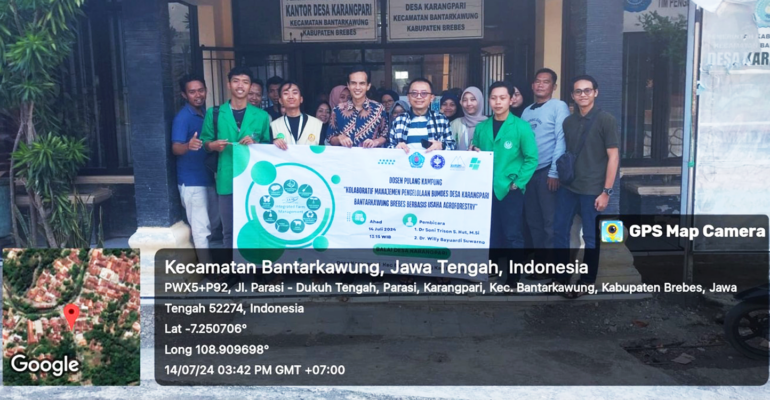IPB University Lecturers Encourage Agroforestry-Based BUMDes Management in Karangpari Village, Brebes

In order to improve the management of Village-Owned Enterprises (BUMDes) and community empowerment through the concept of agroforestry, two IPB University academics, visited Karangpari Village, Bantarkawung District, Brebes Regency, Central Java.
The two IPB University lecturers are Dr Soni Trison, Lecturer of Forest Management Department, and Dr Willy Bayuardi Suwarno, Lecturer of Agronomy and Horticulture. Their empowerment in Karangpari Village is part of IPB University’s Dosen Pulang Kampung (Dospulkam) programme.
Dr Willy Bayuardi Suwarno, known as an expert in plant breeding and genetics, provided material to the farmers and the Karangpari Village BUMDes board. In his session, Dr Willy helped the community to identify suitable crops based on genetics and local conditions. This knowledge is expected to increase agricultural yields and farmers’ welfare.
Meanwhile, Dr Soni Trison, a forest management expert, advocated to the community on the importance of village institutions in managing forest resources.
“BUMDes can be the main promoter in mobilising the community’s economy. When village farmers produce crops, BUMDes acts as the main buyer who then sells the crops outside the village,” he explained.
Dr Soni also explained the importance of using village funds to develop forest areas. With the support of village funds, he said, communities can be helped in developing and maintaining forest areas, which can also improve the local economy.
The event was not only attended by village administrators, BUMDes, and farmers, but also by Real Work Lecture (KKN) students from Universitas Jenderal Soedirman and State Islamic University (UIN) Saifuddin Zuhri Purwokerto.
Dr Soni invited the students to work together in village empowerment. “The presence of students is expected to help smooth the implementation of plans in the field, as well as provide real experience for them in terms of empowering rural communities,” he added.
He hoped that this activity could be the first step in realising an independent and sustainable village through collaboration between academics, village government, BUMDes, and the community. (*/Rz) (IAAS/RUM)



